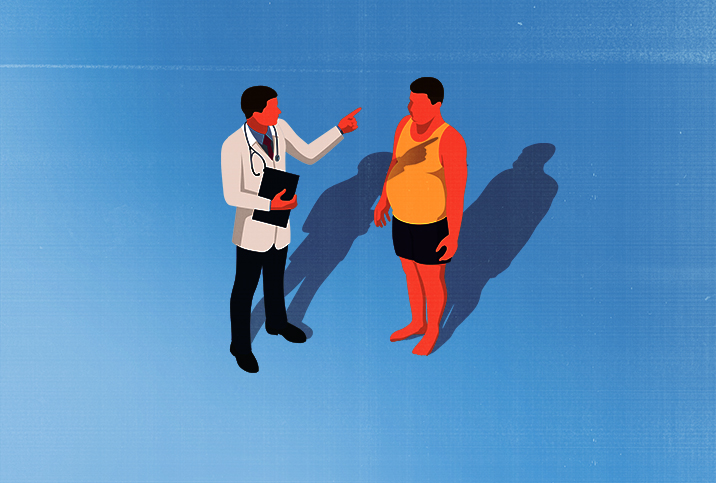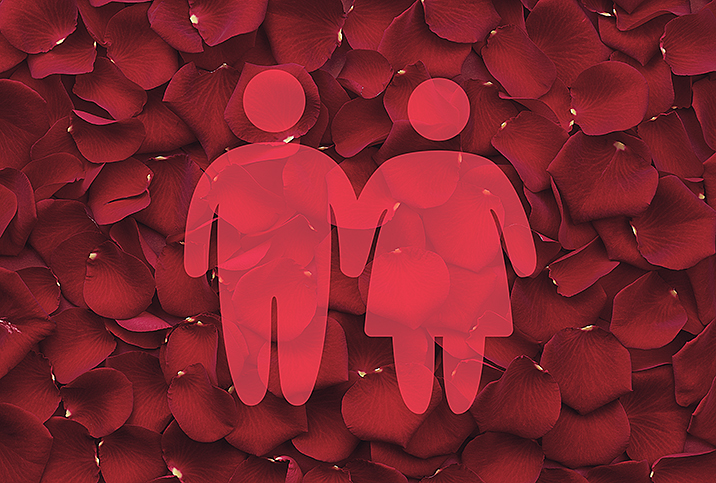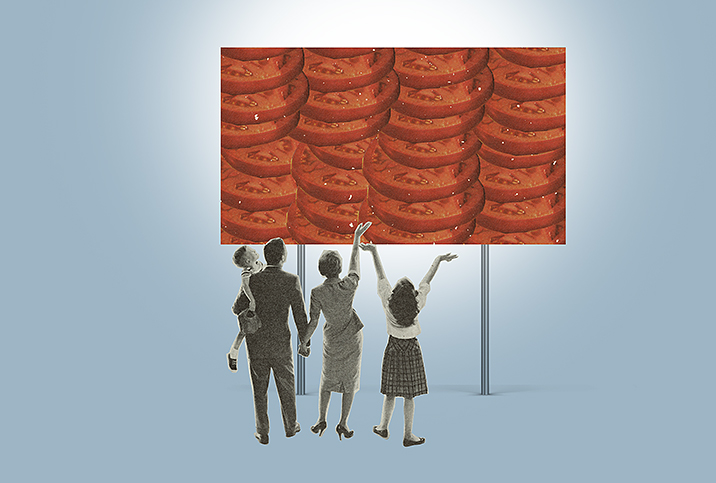The Treatment for Medical Fatphobia

The body positivity movement continues to gain attention. However, the impact of weight stigma is more than a trend for many people.
Medical fatphobia is real. Fat patients regularly share stories of being dismissed, doubted, judged, lectured, stereotyped and insulted by medical professionals. Numerous blogs and social media pages feature stories of weight stigma during exams or consultations.
While formal training and education changes are clearly needed, many advocates insist that improvement in care standards will continue to depend on broader attitudes toward fat people, including changes in workplace culture and a movement of fat empowerment.
More than your weight
Helena (name has been changed) is a social worker with the Veterans Affairs. Her particular worksite uses a Whole Health model, which encourages providers to "look beyond focusing on illness, injury and disability…and is geared towards empowering people to take charge of their own health and well-being and to live life to the fullest." Helena said this is a progressive approach for the "mission-driven culture of the military, which can be super fatphobic and superficial."
"This model can be useful for creating a trauma-informed space that recognizes people are more than just their weight," she continued. "For instance, I worked with a homeless veteran with severe mental health issues and trauma. This veteran was considered o**** [Helena, like many advocates, does not encourage the use of the word "obese"] and his notes from medical providers made that evident."
Helena commented that her client disclosed feeling stress during a recent appointment with his primary care provider (PCP), in which his weight gain was a focus, despite it not being his priority. He said to Helena, "I know I am fat, but I am also homeless and dealing with so much s#*t."
Stop trying to 'fix' us
Graduate student Azaleah Goose studies mental health counseling at San Francisco State University. Her recent paper, "Redefining Unhealthy: It's the System, Not the People," featured multiple vignettes from patients who echoed Helena's client in terms of how they are viewed and treated. Goose attributes this persistent issue in part to medical training, noting the differences between a medical model, rather than a disability medical model or social model.
"It seems a lot like they're being taught to 'fix' their patients, instead of caring for them," Goose said. This is paired with a potential misunderstanding of the patient experience: Goose noted in the paper that when care providers read and heard negative patient reactions, they tended to react with surprise.
"It seems like it's such a shock to them, and it shouldn't be," Goose said. "And I think that's the emotional response that I have. It's such a frustration that they don't realize the impact that they can and do have on patients in general, but especially patients who have marginalized identities, and especially patients who are fat and disabled, or both."
Goose feels increased discussions, especially in focus groups, would improve the understanding of this particular patient experience. Her paper recommends a detailed intervention in the form of a series of conferences, which would focus on increasing awareness of weight stigma, as well as implementing culturally competent and humble ways to work with fat and disabled patients. She said this plan has already been backed by professionals across disciplines.
"I have a number of people who've already expressed, 'When you make this happen, I want to be a part of it,'" Goose said.
How your body feels
Annie Atwater, an LCSW based in Massachusetts, is also aware of negative experiences her fat clients have had, but feels she is seeing a shift in how weight is viewed and discussed among clinicians.
This "change in narratives," as she describes it, has occurred through more informal methods rather than training or conferences. Instead, it evolved from conversations and discourse about what a fat patient might want their body to do or how they want to feel, rather than an overbearing focus on weight loss. As Goose detailed, keeping away from "fixing" patients has yielded benefits.
Recently, a coworker of Atwater's asked for colleague input about supporting a client.
'It's such a frustration that they don't realize the impact that they can and do have on patients in general, but especially patients who have marginalized identities, and especially patients who are fat and disabled, or both.'
The clinician had previously been resistant to changing their weight loss-centered lens. The client was experiencing "self-hatred and low self-esteem" connected to her weight. Rather than focusing on losing weight, the social worker asked for suggestions on how to address the client's negative feelings about her body, as those emotions seemed to be the issue having the biggest impact on her.
"That's not the question that would've been asked a year or two years ago," Atwater said.
It seems the pushback on "fixing" fat patients may be encouraging a reevaluation of diet culture in workspaces and its effects on employees. For several years, Atwater's company held a weight loss competition that involved exercise competitions and weigh-ins. For many reasons, employees felt it was inappropriate and insensitive. Two years ago, the staff received a message from human resources stating the organization would not be holding the competition.
"They said, 'We're not doing [the competition] this year…or ever again. We've been told—and we are listening to people—that this is harmful and we're sorry,'" Atwater said.
Use your influence
Goose has additional recommendations for people in Atwood's and other providers' positions.
"In the provider world, I think the biggest thing that could be helpful at this point in time is for providers who know, understand and ascribe to body neutrality or Health at Every Size (HAES), for them to use that to influence other providers in their office, in their professional networks," Goose said. "Not just being by themself in that work, but actively using the power that they hold to influence others in their networks. That would be, I think, one of the biggest things, even though it sounds a little bit small-scale."
Goose continued, "In terms of the patient side of things, one of the best things I have heard…is that anybody, but especially fat patients, don't owe anyone an explanation of why our bodies look the way they do. Really [do] some internal work on this, not just knowing that it is a right to have adequate and appropriate medical-provided care. Knowing that regardless of the way our body looks and feels, that we deserve that but also knowing that even while you're getting that care, you do not have to explain to the doctor, 'Oh, it's always been this way,' or anything like that. You hold more power, we hold more power than we think we do. Really step into that power and know that we don't owe that to anybody, especially medical providers. They work for us. We don't work for them."


















